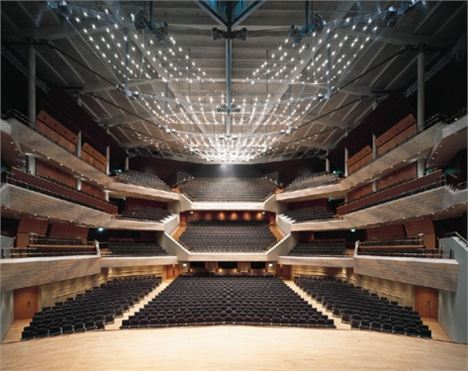ALL SEASONS come to an end.
Beethoven’s Fifth was the perfect way to complete what has been an outstandingly successful, often groundbreaking season for the Camerata
Manchester Camerata closed theirs with a typically idiosyncratic programme that gave us two soloists playing Stradivarius instruments in a neglected Beethoven novelty, a stripped down version of his Fifth Symphony and a world premiere of composer-in-residence Laura J Bowler’s Dance of Death.
The latter, a theatrically-inclined 'multi-concerto' interpreted the love hate marital relationship at the core of Strindberg’s savage play from 1900 and featured ensemble members squaring up to each other, four soloists striding around in fancy dress (especially natty was veteran bassoonist Laurence Perkins) and eventually conductor Gabor Takacs-Nagy abandoning the stage to all this musical confrontationalism.
All part of the show, but I found it a bit hammy. The huge screen flashing up Strindberg’s dialogue was an unwanted distraction from some canny orchestral sparring. Which was a shame since Bowler is a fine talent, now heading off for a teaching post at the Guidhall School of Music at the end of her residency.
Another departure was more of a shock. Lead violinist Giovanni Guzzo is off to "pursue new paths”. Takacs-Nagy’s on-stage announcement provoked a gasp around the Bridgewater Hall. The Venezuelan-born 27-year-old has contributed greatly in his four years with the orchestra, combining stunning technique with old-fashioned charisma.
Both were in evidence during Beethoven’s Concerto for Keyboard, Violin, Cello and Orchestra. Guzzo has long had a Strad on extended loan and for this performance principal cellist Hannah Roberts was lent a rare cello from the same legendary maker.
Heir to Mozart’s Sinfonia Concertante, it’s a lovely piece, sacrificing the big tunes for a delicate complexity to which the pair plus that most poised of pianists, Benjamin Grosvenor do great justice, particularly in the middle Rondo where they achieve great balance together against the orchestra.
Beethoven’s Fifth was the perfect way to complete what has been an outstandingly successful, often groundbreaking season for the Camerata and, if my ears longed for larger orchestral forces for the Fifth and found the woodwind in the final Allegro straying into the shrill, that’s the merest of moans.
If you are still pining for the sweet strings of Guzzo come the opening night of the next Camerata season on Saturday, September sees charismatic compensation in the form of Nicola Benedetti performing in Vivaldi’s Four Seasons (and this being the Camerata, in a hymnlike piece by Arvo Pärt).
To get a taste of the Camerata’s 2014-15 season visit here.















